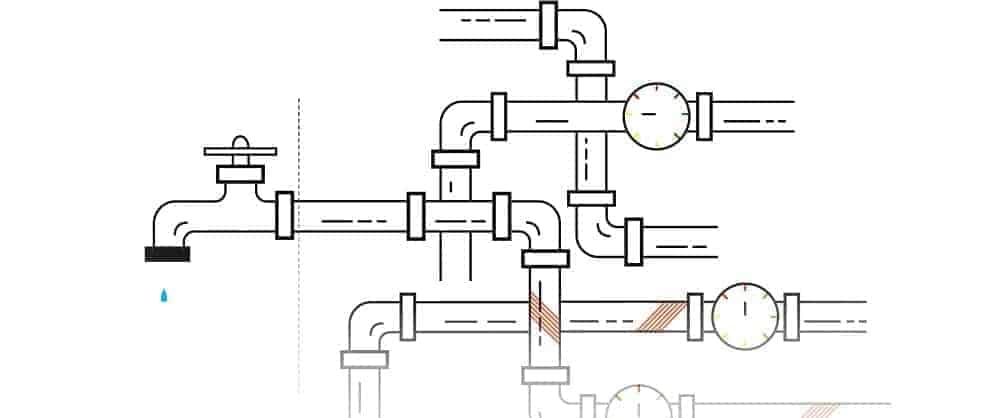Tracking down inefficient processes


A good example for the use of process mining are the classic purchasing processes - these include a very wide range of transactions.
Approvals, deadlines and internal specifications add a high level of complexity, which increases further with the number of suppliers and their individual conditions. Only with the help of an end-to-end analysis and optimization of the purchasing process can companies counter this complexity and, for example, avoid unnecessary duplication of work, such as that caused by subsequent price or quantity changes.
In the supply chain, shorter product cycles, the reduction in vertical integration and the tendency to outsource more and more manufacturing steps are leading to greater dependence on external suppliers and service providers.
Here, it is important to increase the compliance and efficiency of these processes and to clearly identify the causes of inefficiencies such as delivery delays or high inventory levels.
In this way, Celonis process mining customers are empowered to reliably meet delivery promises and shorten deadlines.
An analysis of the real processes helps to evaluate different actors and to control all material and information flows sensibly. It becomes visible at a glance whether the required material and human resources are available at every point in the supply chain without detours or whether there are bottlenecks.
In IT service management, it becomes possible to reduce ticket turnaround times and avoid the "ping-pong" of tickets - resulting in significant cost savings.
But Celonis Process Mining is also frequently used by business and IT departments in projects to harmonize processes in order to determine the current state and continuously measure the progress of the initiative.
Audit departments and auditors use process mining to identify irregularities and compliance violations in processes. The software is used to set up audit plans, conduct the audit and follow up.
Often underestimated is the need to clean up processes before a migration. For example, if a company is migrating to S/4 Hana, this could be a good time to correct inefficiencies in the processes and thus achieve a more optimal ROI for the new solution.
Over the years, a proliferation of special cases and patches may have developed, encouraging variants in the process. In some companies, multiple SAP instances have been used - increasing the likelihood that undesirable process variants have developed in the different ERP systems.
Celonis can track down all of these discrepancies, benchmark them, and standardize them before consolidation - creating better conditions for migration.
Examples from practice
The use of process mining is worthwhile: across all areas of application, companies achieved a reduction in process costs of up to 30 percent - simply by reducing process loops or manual activities.
Since business-critical processes are often analyzed with millions of runs - for example in a supply chain - improvements to individual adjusting screws can already lead to considerable cost optimization.
Siemens
Process mining can in principle be applied to data from all source systems. The Bayer Group, for example, uses Celonis technology to analyze data from its more than ten SAP systems.
Siemens analyzes data from more than 70 SAP ECC systems globally on a central SAP Hana platform.
Celonis Process Mining is based directly on this platform and is used by over 2000 users. In the meantime, more than 30 different processes are analyzed - such as purchase-to-pay or order-to-cash.
Schukat Electronic
But medium-sized companies also benefit considerably from process mining: The best example is Schukat Electronic in Monheim, a distributor of electronic components with 25,000 products in its portfolio.
Schukat has been using SAP since 2009 and in 2012 was one of the first companies to implement a business warehouse based on Hana. Celonis was used in the first step in purchasing for supplier evaluation.
A pilot project on the existing SAP Hana infrastructure proved that everything fit with Celonis: the speed, the transparency created, and also the ability to quickly draw conclusions from the analyses and even observe the effect of the measures in a timely manner.
Within just two weeks, the first evaluations were on the table. Today, the purchasing department knows exactly who delivers reliably and within what deadline, can renegotiate and place orders in a more targeted manner.
In order to improve the throughput of goods, Schukat followed up with the analysis of warehouse data - where the actual value creation takes place at Schukat and where the delays were also suspected.
Based on data from an SAP extended warehouse management (EWM) system, Celonis provides information about orders from the time the delivery document is entered in the warehouse to the time of actual delivery - at a granular level.
And the analysis surprised positively: hardly any time was lost here, the optimization steps of the last years were successful. With the help of Celonis Process Mining, it could be clearly shown that the actual bottlenecks had arisen on the sales side:
Here, there were media disruptions and self-made hurdles such as delivery blocks or credit management. Not all orders were processed automatically either.
Celonis was able to create end-to-end transparency that revealed many starting points for optimization to the management. The effort for this is kept within limits: A process mining evaluation in Celonis is set up once, and from then on, the data update runs in the background - thanks to Hana so quickly that a user does not notice anything, but still always has up-to-date data.
Those responsible can analyze exactly what happened in each case within each process step down to the line item level. Today, Schukat has insight, overview and transparency in the processes - everywhere.
Von Ardenne
The Saxon machine and plant manufacturer Von Ardenne achieved similarly good results. In 2013, process mining was also used in the course of the SAP introduction and the consolidation of a previously very heterogeneous system landscape.
The technology was initially used in the purchase-to-pay (P2P) process, specifically in supplier monitoring and in strategic and operational product purchasing.
The results were so convincing that the service department also quickly expressed a need: Today, it uses the software to analyze the service process across the SAP and CRM systems.
Further analyses are in the pipeline, for example in the areas of quality management, ITSM or project management.
And there is also a lot of potential in the manufacturing process: from order to delivery, process mining will be used to analyze lead times and data and use them for better, more efficient planning and in business analytics processes.
Celonis Pi: AI and Machine Learning
Automated management consultant
Celonis Pi (Proactive Insights) is a logical evolution of process mining that simultaneously aims to improve processes. In order to offer such functionalities, Celonis developers used the latest insights from the fields of artificial intelligence and machine learning.
Key benefit: Celonis Pi learns how a company's business works and automatically finds the weak points in a process. It provides a root cause analysis and prioritized recommendations for action at the same time. This also allows statements to be made about future scenarios. In the Pi Conformance module, this begins with a comparison of the actual processes with a specified process flow or model, for example in BPMN format. The detected deviations are analyzed for their impact on the overall process efficiency, their causes are identified and possible measures for optimization are suggested automatically. Machine Learning in Celonis Pi makes it possible to look at current and future processes and transactions based on past experience: How can planning reliability in logistics and production be maximized? Where can problems in procurement, warehousing, with suppliers or specific materials be addressed preemptively? How are customers likely to behave and what measures might be promising? Finally, with Pi Companion, process-related bottlenecks and imbalances in day-to-day operations are continuously made visible. Technically, machine learning methods automatically evaluate correlations in millions of process-related data within seconds. Celonis Pi takes on the role of an automated business consultant: it identifies potential for improvement as well as concrete starting points and solutions - regardless of whether the focus is on the current or future optimization of central business processes such as purchasing, production, sales, logistics or marketing.







